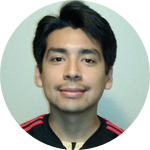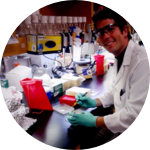About This Project
The latest craze in the club scene, snorting raw cacao powder, has partiers buzzing. While its beneficial properties to the gut microflora have been well characterized, this novel use of cacao powder necessitates the need to investigate the potential benefits/drawbacks of nasal inhalation to human health. This project aims to elucidate the implications of raw cacao to the sinonasal cavity microbiome.
Ask the Scientists
Join The DiscussionWhat is the context of this research?
The rising recreational use of cacao powder has been the subject of increasing attention and concern. Its use elicits a rush of endorphins and serotonin, providing euphoric energy and calm focus. While inhalation of the substance is currently legal, concerns have mounted about potential hazards to the nasal cavity, with long term use possibly causing sinus infections, nasal passage blockage, and disruption of natural processes. Since cacao powder is nutrient-rich and low in fatty acids and sugars, coating of the nasal passages with the material may change the microbial ecology of the mucosal lining. This project aims to investigate the effect of cacao powder on sinonasal microbiome composition
What is the significance of this project?
While the anti-inflammatory properties and benefits of cacao on gut and digestive tract microbiota have been extensively studied, the implications of this novel mode of entry through nasal inhalation has not been well-characterized. Cacao use has grown quickly in US and Western European party scenes and is poised to be adopted by young adults as a means of a "legal high". To date, cacao has been considered harmless; however, its new use as a stimulant within party culture has spurred debate about its safety. Cacao contains tyrosine, a precursor to dopamine, which elicits euphoria and could incite behavioral addiction. This pilot study addresses the effect that nasal inhalation of cacao powder has on the bacterial community of the sinonasal microbiome.
What are the goals of the project?
This project will provide initial insight on the role of cacao powder inhalation on microbial community composition changes within the sinonasal cavity over time, a subject yet to be addressed in scientific literature. Starting mid-January, 12 participants will be asked to submit nasal swabs on a weekly basis to establish baseline microbiota composition. Swabs will be grown in liquid and plated. Bacterial colonies will then be isolated by morphology and genomic markers screened for species identification. After 3 weeks, half of the participants will snort cacao powder once per day for one week. Observation will continue for multiple weeks and changes in the species richness will be calculated and analyzed.
Budget
At this point in time there is no funding available for this project and, since the research is not associated with my doctoral work, it will be performed at the Austin Community College Bioscience Incubator in Austin, Texas. This incubator provides the wet lab bench space and instrumentation that will enable this research. The rest of the funds will be used to purchase media and supplies required for the execution of the experimental methods. Finally, sequencing will be performed off-site at a core facility.
Endorsed by
 Project Timeline
Project Timeline
To complete this project in a timely manner, I will begin gauging interest from potential volunteers and filing the application for lab space during the fundraising cycle. Once funded, I will start collecting swabs and storing DNA samples for sequencing. Three weeks into the collection, I will provide the subjects with enough single doses for 7 days, after which, I will collect samples for three more weeks. I will then bioinformatically analyze the data and report the results.
Nov 29, 2017
Project Launched
Jan 08, 2018
Secure lab space
Jan 15, 2018
Recruit subjects
Feb 05, 2018
Start dosing schedule for treatment group
Mar 05, 2018
Complete data collection
Meet the Team
Mark Sherman
My interests in molecular biology began in high school, when I took my first molecular biology course. During the course, I interned at NIST studying the effects of HIV drug combinations on animal cell survival. This work galvanized my desire to become a member of the scientific community.
I attended college at the University of Maryland, gaining experience in field research and histology, assisting in oyster restoration management efforts in the Chesapeake Bay. After two years, I found myself wanting more influence over the experimental design process and decided to pursue a masters degree. In 2007, I went to the University of North Carolina- Wilmington, where I studied population genetic patterns of scallops using hundreds of genetic loci. While studying, I had the opportunity to teach and tutor courses such as Introduction to Biology, Physics, and Genetics, leading to two graduate teaching awards and a co-authorship of the Genetics lab manual
Upon graduation, I was offered a full-time instructor position at Coastal Carolina Community College. There, I worked with a diverse student body, oversaw up to 10 employees, and authored over 5 lab activities; however, I was contractually forbidden from doing lab work. I eventually became so excited about the field that I had to leave to pursue research. Following my last day, I drove to San Diego and began volunteering at local institutions conducting genetic research.
These opportunities led me to a position at Synthetic Genomics, where I was involved in microbial discovery and metabolic engineering efforts to synthesize chemical products. I realized there that I wanted to make a career in molecular biology and am now in my third year Ph.D. student in Cellular and Molecular Biology at the University of Texas. I am currently looking for opportunities to broaden my research repertoire outside of my program.
Lab Notes
Nothing posted yet.
Project Backers
- 4Backers
- 3%Funded
- $154Total Donations
- $38.50Average Donation

